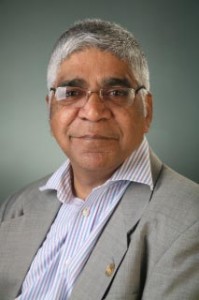 Several years ago in a study carried out at the Dept of Neurosurgery in AIIMS New Delhi, the authors continuously monitored the pulse rate, blood pressure and ECG of neurosurgeons while they were operating, and correlated it with the actual surgical steps in different procedures.
Several years ago in a study carried out at the Dept of Neurosurgery in AIIMS New Delhi, the authors continuously monitored the pulse rate, blood pressure and ECG of neurosurgeons while they were operating, and correlated it with the actual surgical steps in different procedures.
It was observed that the pulse rate and blood pressure of the primary surgeon sometimes reached up to 200+ . Transient changes in the surgeon’s ECG were occasionally recorded. These changes occurred in healthy neurosurgeons of varying levels of experience .
The implications of this are twofold. One is concern for the surgeon’s health, particularly if s/he was already on medication. The second is, will this physical and emotional stress have a bearing on the decision making process and will this ultimately influence the patient’s health outcome?
While computing the risk of a surgical procedure, the location and nature of the tumour, the patient’s age, presence or absence of diabetes, hypertension, renal status, previous myocardial infarction, medication being taken, etc are all taken into account.
Should weight be given to the presence of “comorbid medical conditions” which the surgeon may have? What about the emotional status of the surgeon during the surgery? Today’s “consumer,” who always wants better than the best, forgets that doctors are often under stress. It is assumed that doctors are superhumans, always on call, familiar and adept with tomorrow’s science and technology, a Mr Know it All, a repository of information, who will always take the best,cost effective decision only in the patient’s interests.
Do we ever ponder the doctor’s frailties, his physical and mental health, when his cortex quickly reviews an algorithm with all the patient’s data. Medicine is physically and mentally a demanding profession. Long working hours, night calls, treating serious and critically ill patients, dealing with terminally ill patients and their relatives, keeping abreast of recent developments, striving to fulfil personal development plans and aiming to achieve higher goals; all contribute to the pressure. Obsessive, conscientious personalities do not help. Healthcare needs well- honed knowledge recall, judgement and problem solving abilities. Precise motor skills, coordination, and an ability to work for prolonged periods, handling emergencies and unexpected complications are a prerequisite. Conflicting time demands, professional responsibility, often in systems where physical and social resources are deficient and threats of medico legal action further compound the problem. Often, doctors have no power to alter the conditions under which they work.
The incidence of chronic diseases and mental health problems among doctors is no different than in the general population. In the west, published literature indicates that depression, anxiety and drug abuse are actually higher. Will this have a repercussion on patients treated? Doctors do not want patients or colleagues to know that they are not healthy. A “sick” doctor treating a patient would normally be “unacceptable” for the patient. There could be a direct immediate impact on the doctor’s career development, Western literature describes this as “the conspiracy of silence.”
The European Working Time Directive (EWTD) mandates doctors to work for only 50 hours a week . This supposedly provides quality time for themselves and their families, sufficient compulsory rest periods, and reduces working at unsocial hours. It is yet to be documented whether this provsion for the doctor’s mental and physical wellbeing actually translates into a better health outcome for the patient.
With an acute shortage of doctors in India, is this practical, desirable or even relevant? Doctors are generally conscientious, and fully aware of the repercussions of managing patients in situations where their own judgement could be impaired or their motor skills compromised. Wisdom is an awareness of one’s limitations. As a judge excuses himself from participating in certain cases, doctors need to do likewise.
Epilogue: May 26 2015
A patient is about to be wheeled into the operating theatre and says: “Hi doc, as per National Accreditation Directives and the Joint Commission International, can I review your current medical records , medications you are on and pre op assessment for your fitness to operate on me? I hope there were no tiffs at home or at work – all the best!
Krishnan Ganapathy is a neurosurgeon and telemedicine specialist was a former Secretary and Past President of the Neurological Society of India . He was also Secretary General of the Asian Australasian Society of Neurological Surgery. A Past President of the Telemedicine Society of India, he is currently President of the Indian Society of Stereotactic and Functional Neurosurgery See www.kganapathy.com
